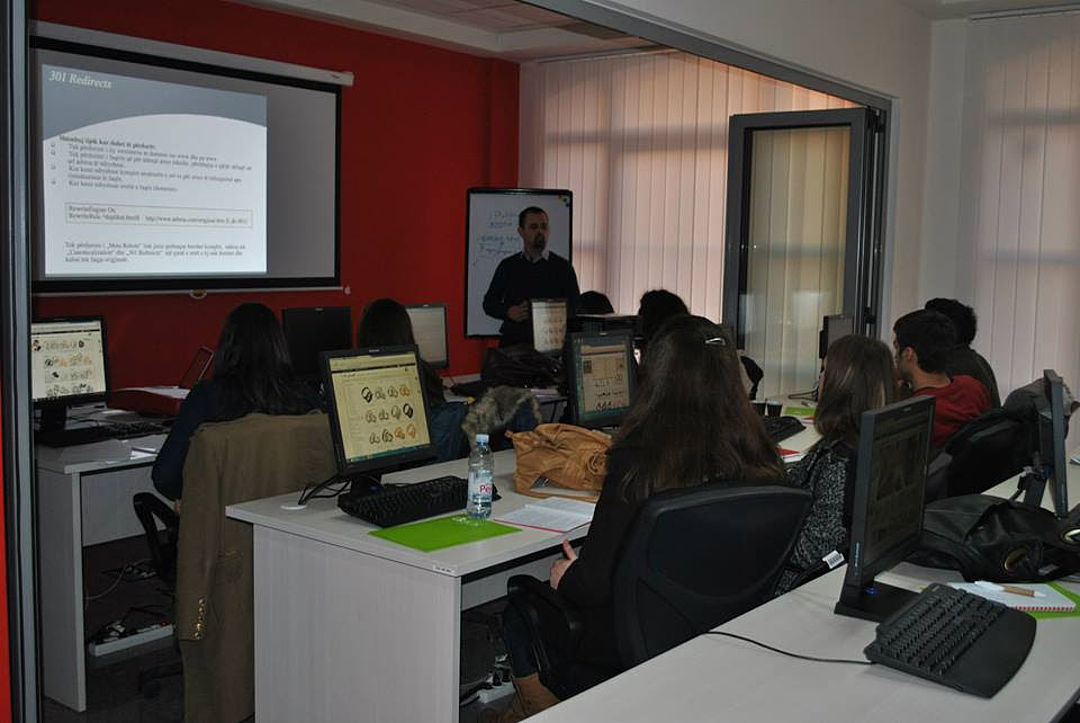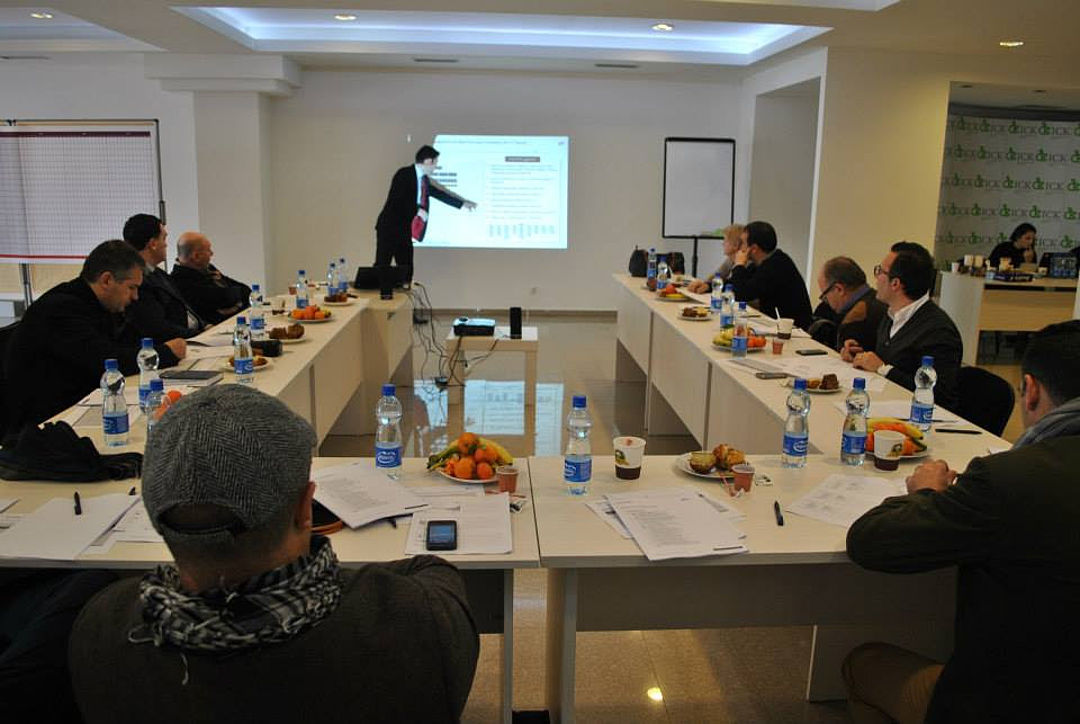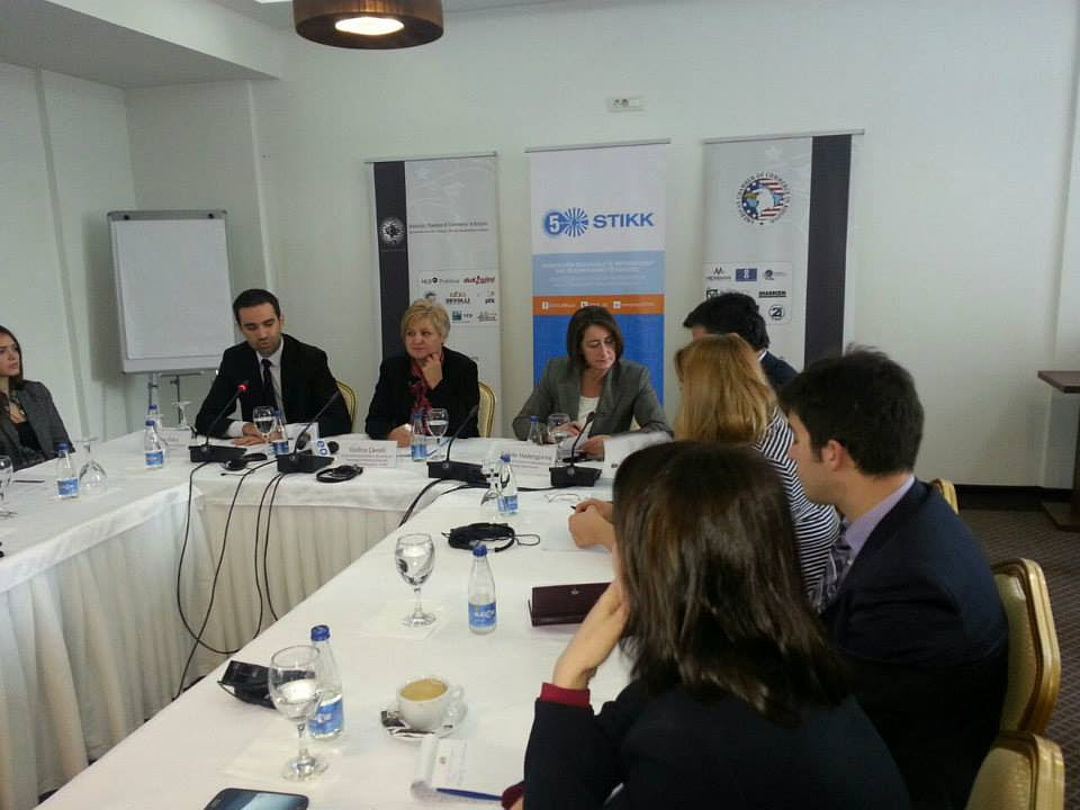27.12.2013
Businesses are concerned about the delay on the adoption of the Law on Custom Exempted Goods
As a result of the delay of relevant committees of the Assembly of Kosovo in returning the Draft law on Custom Exempted Goods on the agenda of the Assembly for approval and with the purpose of discussing these delays and the faster approval of this draft law, which would be of a great importance for domestic producers as well as for the sector of information, communication, and technology, the Kosovo Association of Information Communication and Technology, and American Chamber of Commerce in Kosovo, organized a roundtable with members of the Parliamentary Committee on Budget and Finance. Members of the Committee on Legislation and Constitution were also invited, but none of them participated in the roundtable.
Vjollca Çavolli, Executive Director of STIKK, stated that such debates are an excellent opportunity for finding solutions to several issues that concern the business community, in this case to find a solution to the issue of the draft law in question, which was recommended in 2009 in cooperation with AmCham and other business associations, always aiming to facilitate the conditions of the private sector, in particular the manufacturing and ICT sector. Ms. Çavolli added that the adoption of this draft law would bring many advantages. She expressed her concerns regarding the continuous decrease of the revenues from import of IT equipments, which can suggest an increase of informalities in this regard. Considering that 76 per cent of the population uses the internet, it is of a great importance to provide a free approach on electronic communication equipments. This initiative would be among the firsts and the most important for the ICT sector, which is continuously growing and becoming more important in our country.
On the other hand, Arian Zeka, Executive Director of AmCham, said that due to the difficult situation faced by the manufacturing sector, which prevents the growth of a competitive position for Kosovo manufacturing enterprises as compared to those of the neighboring countries, it is of a great importance that the Draft law on Custom Exempted Goods is passed by the Kosovo Assembly as soon as possible, considering that the approval of this law will enable the strengthening of the private sector as a major driver of economic development.
Safete Hadergjonaj, Chairperson of the Parliamentary Committee on Budget and Finance, expressed her appreciation to business associations for taking such an initiative, by offering a good opportunity to businesses to express their concerns. “However, the issue regarding the approval of the Draft law on Custom Exempted Goods is of concern to the Budget and Finance Committee as well” added Ms. Hadergjonaj. After briefly explaining the drafting procedures of this draft law, she promised that much more effort will be put into the adoption of this draft law as soon as possible.
While understanding the concern of the business community, Naser Osmani, 1st Vice Chairperson of the Parliamentary Committee on Budget and Finance, said that in coordination with the Ministry of Finance, they aimed to have provisions within the draft law which enable the Ministry of Finance, to decide on changing the list of custom exempted goods after consulting the Budget and Finance Committee, with the purpose of avoiding long procedures of amending and supplementing the laws. He invited the business associations and the businesses present at the event to give their recommendations on overcoming this issue. Businesses that were present at this roundtable expressed their personal concerns regarding the lack of fiscal policies that are in favor of manufacturing companies and the ICT sector, while at the same time requesting for a faster approval of the respective draft law.












